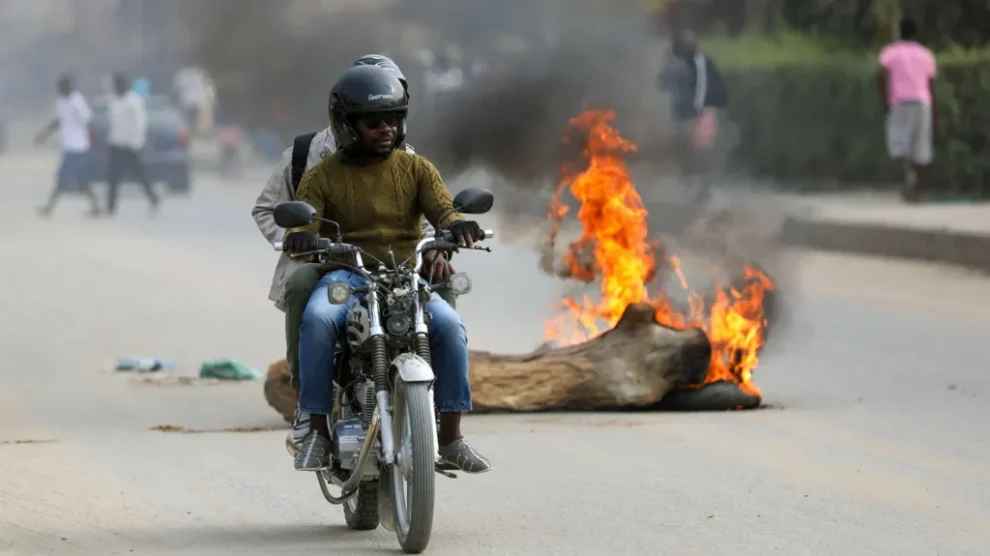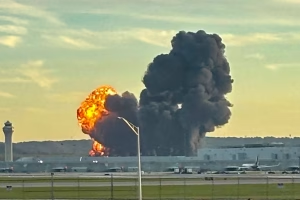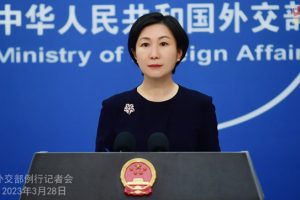LUANDA, ANGOLA – Police in Angola’s capital, Luanda, have reported that four people have been killed and 500 arrested following widespread demonstrations that began as a taxi driver strike against rising petrol prices. The protests have escalated into one of the most significant and disruptive waves of unrest the country has seen in recent years.
What started as a three-day strike by taxi drivers on Monday quickly drew in thousands of people, leading to blocked roads, looted shops, destroyed cars, and clashes between demonstrators and police. Reports of gunfire in parts of the capital have continued since Monday night. Pockets of protest and further clashes persisted in Luanda on Tuesday, with demonstrations also spreading to the central city of Huambo.
Prominent local activist Laura Macedo told the BBC that the fuel price issue was “just the last straw that has reignited widespread public discontent… People are fed up. Hunger is rife, and the poor are becoming miserable.”
The strike was initiated by taxi operators in response to the government’s decision in early July to raise the price of diesel by over 33%, a measure part of a plan to remove fuel subsidies in the oil-rich nation. This increase has not only led to higher fares for urban Angolans reliant on taxis but has also driven up the cost of staple foods and other basic necessities as transport costs are passed on to consumers.
However, President João Lourenço has dismissed these concerns, suggesting that protesters are using petrol prices as a pretext to undermine his government. He recently told CNN Portugal that “even after the increase, the price of diesel in Angola remains around 40 US cents [per litre], and there are not many countries in the world with prices this low.” This contrasts sharply with the average monthly wage in Angola, which stands at just 70,000 kwanzas ($75; £56), with a promised increase to 100,000 kwanzas yet to materialise.
As frustrations boiled over on Monday, protesters chanted against the fuel price hikes, nearly five decades of rule by the governing MPLA party, and the country’s overall economic situation. State-run media has faced criticism on social media for its lack of coverage of the demonstrations.
By Monday evening, the ruling MPLA party issued a warning to young people against joining the protests, describing the “acts of vandalism” as a deliberate attempt to “tarnish and hinder the joyful celebration” of Angola’s 50th anniversary of independence. Local authorities in Luanda also expressed “deep concern,” characterising the events as “disturbances and acts of vandalism associated with the forced halting of taxi services.” They claimed the strike had been called off after negotiations, but “groups of unidentified individuals” continued to promote “intimidation and violence.”
A major taxi association, Anata, has distanced itself from Monday’s violence but vowed to continue the three-day strike, stating that “the voice of the taxi drivers reflects the outcry of the Angolan people.” As of Tuesday afternoon, many major shops, banks, and businesses remained closed, with police warning they would continue to “intervene where there are still disturbances” to “re-establish public order and peace.” The spontaneous nature of many of these protests indicates a deep-seated public discontent beyond just fuel prices.





Add Comment